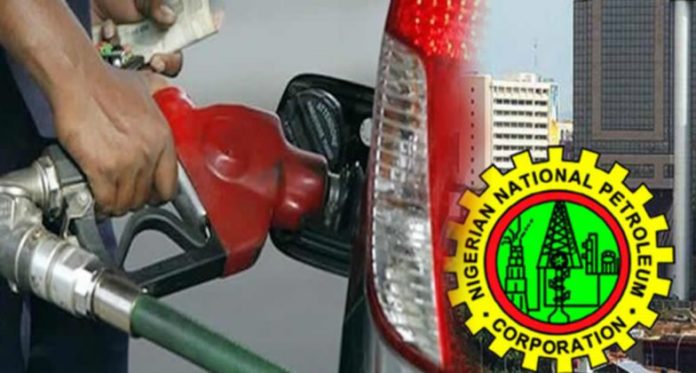In a renewed dispute over the removal of petrol subsidy, the Nigerian National Petroleum Company Limited (NNPCL) and fuel marketers, represented by the Independent Petroleum Marketers Association of Nigeria, clashed on Tuesday. This confrontation is set against the backdrop of the Naira’s depreciation against the United States dollar in both official and parallel markets.
The official exchange rate closed at 998 Naira to a dollar, while the parallel market traded at 1,225 Naira to a dollar on Tuesday. Economists and oil marketers argue that the falling Naira has led to an increase in Premium Motor Spirit (PMS) subsidy. However, the NNPC countered these claims, asserting that it is recovering the full cost of importing petrol.
Bismarck Rewane, CEO of Financial Derivatives Company, clarified during a television program that the subsidy on fuel was reduced, not removed. Oil marketers, citing the Naira’s devaluation and crude oil costs, projected that PMS should sell for N1,200/litre in a free market.
Despite the conflict in perspectives, petrol, imported solely by NNPCL, currently sells between N617/litre to N660/litre in Nigeria. The NNPC’s Chief Corporate Communications Officer, Olufemi Soneye, reiterated the government’s stance, emphasizing the cessation of subsidy on petrol.
President Bola Tinubu’s declaration on May 29, 2023, was swiftly implemented by the NNPC the next day, resulting in a surge in petrol prices. The World Bank, in December, insisted that subsidy on petrol persists, estimating the cost should not be below N750/litre without subsidy.
Amid these developments, the Naira closed at N988.46/$ in the Investors and Exporters Window, marking an 8.97% decline. The World Bank noted a 41% depreciation against the US dollar in the official market and a 30% decline in the parallel market. The NNPC reported 112 cases of crude oil theft in the Niger Delta in one week, posing challenges to Nigeria’s oil production quota set by OPEC.
As the dispute unfolds, stakeholders remain divided over the economic, social, and political implications of subsidy removal, with concerns raised about potential further hardships if the subsidy is eliminated entirely. The NNPC remains firm in its commitment to recovering full costs, emphasizing energy security and sustainable growth for Nigeria.

